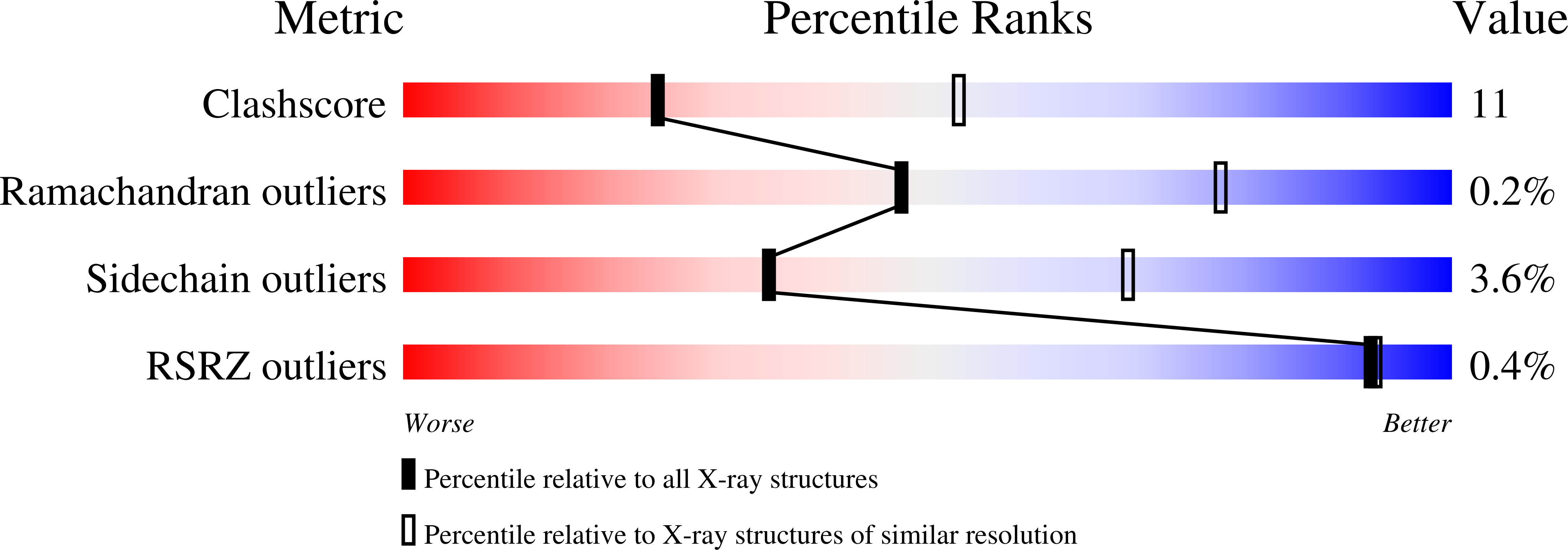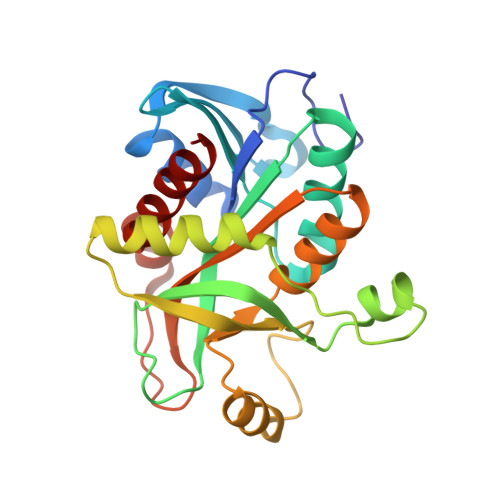Validation of the catalytic mechanism of Escherichia coli purine nucleoside phosphorylase by structural and kinetic studies.
Mikleusevic, G., Stefanic, Z., Narczyk, M., Wielgus-Kutrowska, B., Bzowska, A., Luic, M.(2011) Biochimie 93: 1610-1622
- PubMed: 21672603
- DOI: https://doi.org/10.1016/j.biochi.2011.05.030
- Primary Citation of Related Structures:
3ONV, 3OOE, 3OOH, 3OPV - PubMed Abstract:
The catalytic mechanism of Escherichia coli purine nucleoside phosphorylase (PNP) is revised using site-directed mutagenesis, kinetic studies and structure determinations. The experimental evidence on the role of the particular catalytic amino acid during catalysis has not been available. Therefore, the active site mutants Arg24Ala, Asp204Ala, Asp204Asn, Arg217Ala and Asp204Ala/Arg217Ala were prepared and their kinetics and thermodynamic studies were carried out. The activity tests with natural substrates and 7-methylguanosine confirmed the earlier hypothesis, that catalysis involves protonation of the purine base at position N7 by Asp204, which is triggered by Arg217. The crystal structures of the wild type in complexes with phosphate and sulphate, respectively, and of the Arg24Ala mutant in complex with phosphate/sulphate were determined. The structural data show that previously observed conformational change is a result of the phosphate binding and its interaction with Arg24. As E. coli PNP is a promising candidate for the tumour-directed gene therapy, our results may also help to design efficient mutants useful in gene therapy.
Organizational Affiliation:
Division of Physical Chemistry, Ruđer Bošković Institute, POB 180, HR-10002 Zagreb, Croatia.















